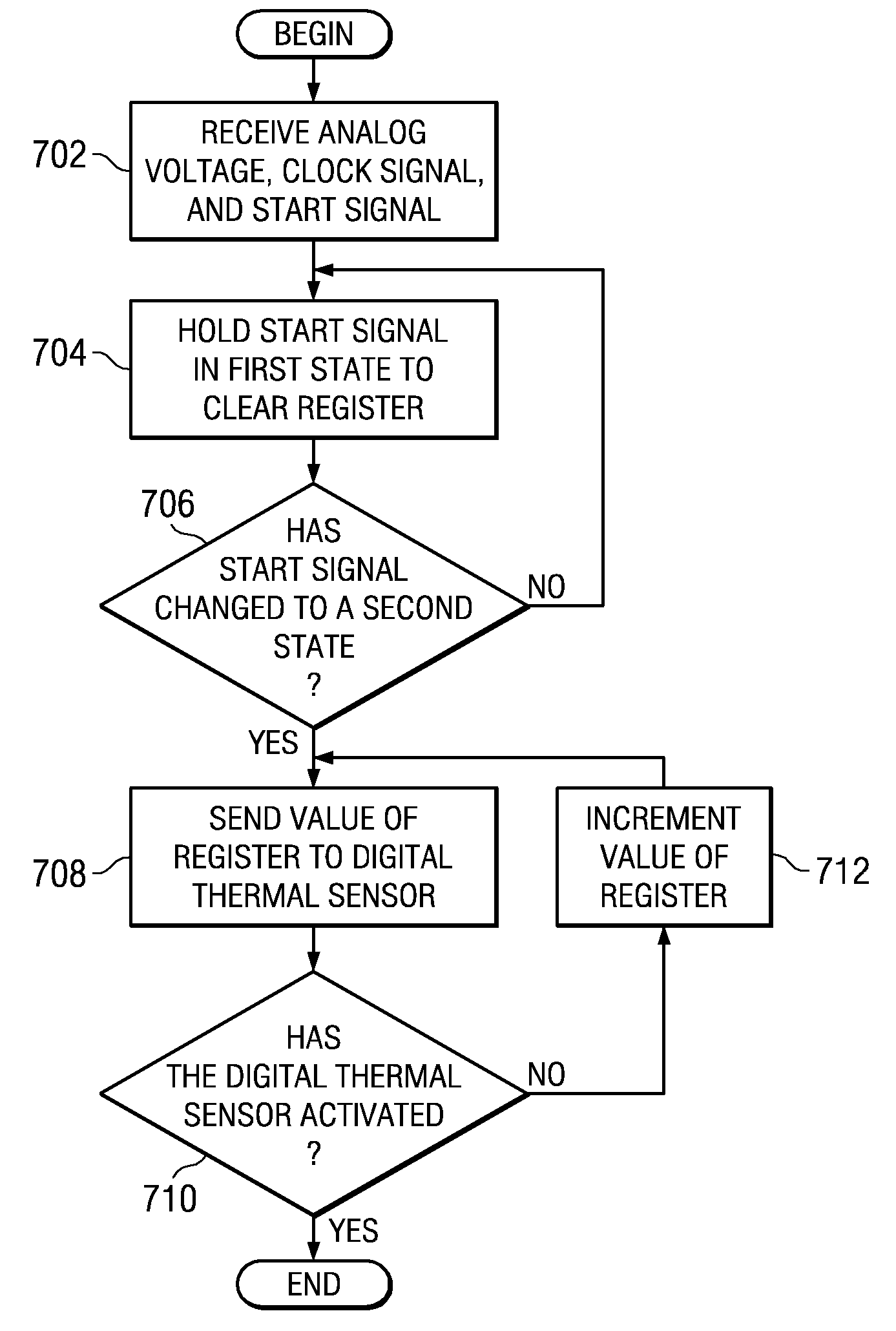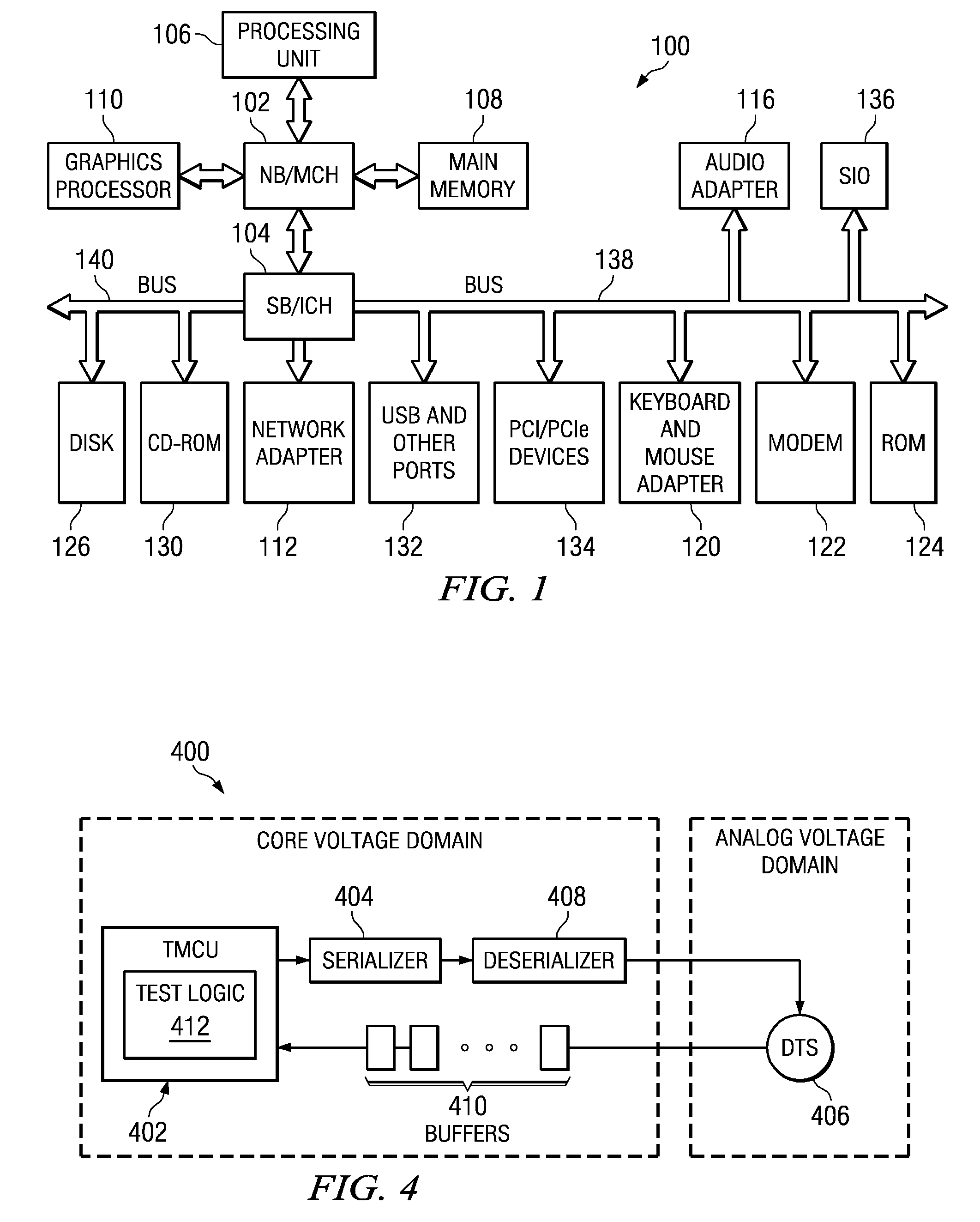Digital Thermal Sensor Test Implementation Without Using Main Core Voltage Supply
- Summary
- Abstract
- Description
- Claims
- Application Information
AI Technical Summary
Benefits of technology
Problems solved by technology
Method used
Image
Examples
Embodiment Construction
[0023]The illustrative embodiments provide for calibrating digital thermal sensors while consuming as little power as possible. Using as little power as possible during the calibration process may reduce or eliminate the effect of self-heating by the processor due to leakage current. While the illustrative embodiments are optimally used with a Cell Broadband Engine (BE) chip, the described features may be used with other data processing systems. Therefore, FIG. 1 is provided as a description of a general data processing system and FIG. 2 is provided as a description of a Cell BE chip. FIG. 1 is provided as an exemplary data processing system in which aspects of the illustrative embodiments may be implemented. Data processing system 100 is an example of a computer in which computer usable code or instructions implementing the processes for illustrative embodiments of the present invention may be located.
[0024]In the depicted example, data processing system 100 employs a hub architect...
PUM
 Login to View More
Login to View More Abstract
Description
Claims
Application Information
 Login to View More
Login to View More - R&D
- Intellectual Property
- Life Sciences
- Materials
- Tech Scout
- Unparalleled Data Quality
- Higher Quality Content
- 60% Fewer Hallucinations
Browse by: Latest US Patents, China's latest patents, Technical Efficacy Thesaurus, Application Domain, Technology Topic, Popular Technical Reports.
© 2025 PatSnap. All rights reserved.Legal|Privacy policy|Modern Slavery Act Transparency Statement|Sitemap|About US| Contact US: help@patsnap.com



